13 Best Herbal Creams For Chest Congestion
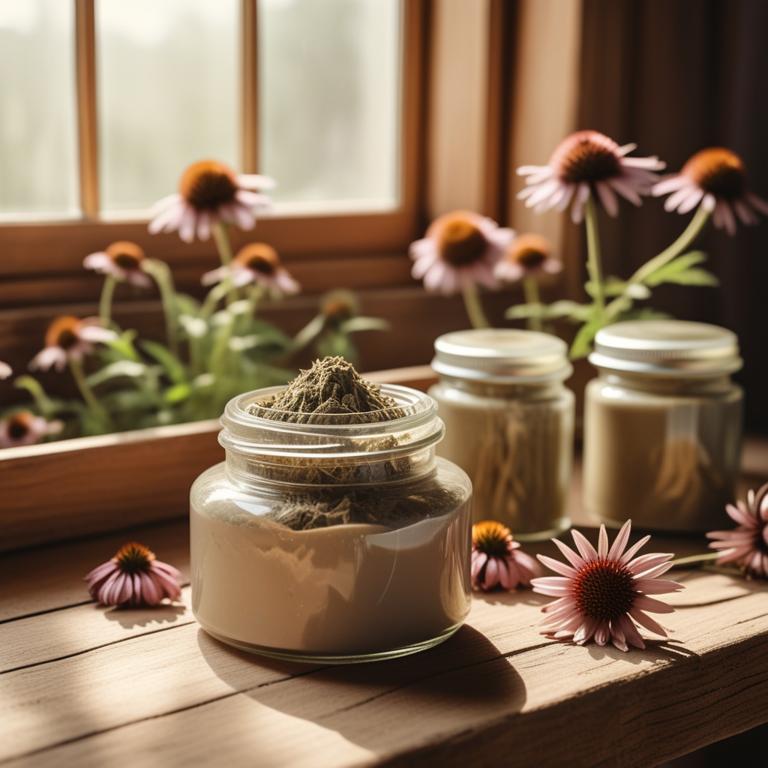
Herbal creams for chest congestion are topical ointments or lotions made from natural herbs and plants that are used to alleviate symptoms of respiratory congestion, such as coughing, wheezing, and difficulty breathing.
These creams offer several benefits, including providing fast relief from congestion, reducing inflammation, and promoting relaxation.
Examples of herbal creams used to treat chest congestion include eucalyptus cream, which helps to clear mucus and ease breathing, peppermint cream, which cools and soothes the chest, and thyme cream, which has antibacterial properties to combat infections.
Additionally, other herbal creams like lavender, rosemary, and ginger are also effective in treating chest congestion due to their anti-inflammatory and expectorant properties, making them a popular choice for those seeking natural remedies.
According to "Evidence-based complementary and alternative medicine : eCAM", creams for chest congestion may be beneficial when using the isolated bioactive components from plants such as Zataria multiflora, Portulaca oleracea, Ferula assa-foetida, or Nigella sativa, which have anti-inflammatory and bronchodilator effects.
Below there's a list of the 13 best herbal creams for chest congestion.
- 1. Eucalyptus globulus creams
- 2. Thymus vulgaris creams
- 3. Mentha x piperita creams
- 4. Salvia officinalis creams
- 5. Rosmarinus officinalis creams
- 6. Zingiber officinale creams
- 7. Cymbopogon citratus creams
- 8. Echinacea purpurea creams
- 9. Lavandula angustifolia creams
- 10. Melissa officinalis creams
- 11. Ocimum basilicum creams
- 12. Lavandula latifolia creams
- 13. Hyssopus officinalis creams
Also you may be interested in...
TODAY'S FREE BOUNDLE
Herb Drying Checklist + Herbal Tea Shopping List + Medicinal Herbs Flashcards
Enter you best email address below to receive this bundle (3 product valued $19.95) for FREE + exclusive access to The Aphotecary Letter.
$19.95 -> $0.00
1. Eucalyptus globulus creams

Eucalyptus globulus creams have been a popular herbal remedy for centuries to treat chest congestion, a common ailment characterized by coughing and difficulty breathing.
The properties of this herbal preparation, such as its expectorant and anti-inflammatory properties, help to relieve congestion by loosening mucus and reducing inflammation in the airways.
The bioactive constituents of Eucalyptus globulus, including eucalyptol, camphor, and cineole, are responsible for its therapeutic effects, which help to open up airways and make breathing easier.
The benefits of using Eucalyptus globulus creams to treat chest congestion include quick relief from symptoms, reduced risk of complications, and a natural, non-invasive approach to managing this common health issue.
Related Study
According to "African journal of traditional, complementary, and alternative medicines : AJTCAM", Eucalyptus globulus creams are a treatment option for chest congestion, as it was cited as one of the most used natural resources in traditional communities for the treatment of acute respiratory infections in children.
2. Thymus vulgaris creams

Thymus vulgaris creams, derived from the Thymus vulgaris herb, have been traditionally used to treat chest congestion by providing relief from coughs, colds, and respiratory infections.
The antimicrobial and anti-inflammatory properties of this herbal preparation help to treat chest congestion by reducing the growth of pathogens and soothing irritated tissues in the respiratory tract.
The bioactive constituents of Thymus vulgaris creams, including thymol and carvacrol, exhibit bronchodilatory effects, which help to ease congestion and promote easier breathing.
The benefits of using Thymus vulgaris creams to treat chest congestion include reduced symptoms, improved respiratory function, and a faster recovery rate, making it a popular natural remedy for respiratory issues.
3. Mentha x piperita creams
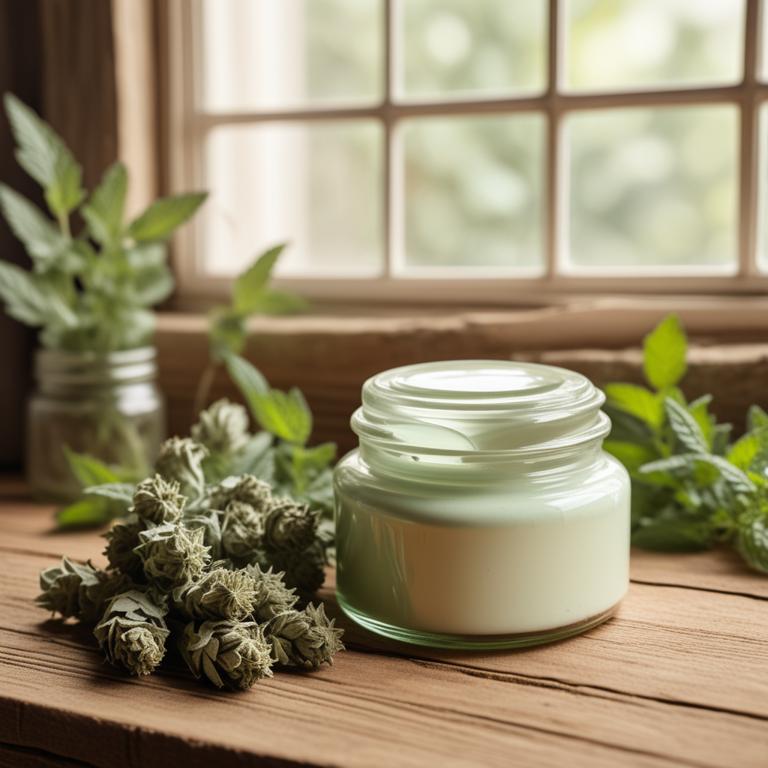
Mentha x piperita creams, also known as peppermint creams, possess anti-inflammatory and expectorant properties that help to treat chest congestion by loosening mucus and reducing congestion in the chest and lungs.
These creams help to treat chest congestion by providing quick and temporary relief from coughs, colds, and flu, making it easier to breathe and cough up mucus.
The bioactive constituents of peppermint creams, including menthol and menthone, act as natural bronchodilators and mucolytics, which help to relax airway muscles and break down mucus, making it easier to expel.
The benefits of peppermint creams in treating chest congestion include reduced coughing, improved breathing, and relief from congestion, making them a popular natural remedy for respiratory issues.
4. Salvia officinalis creams
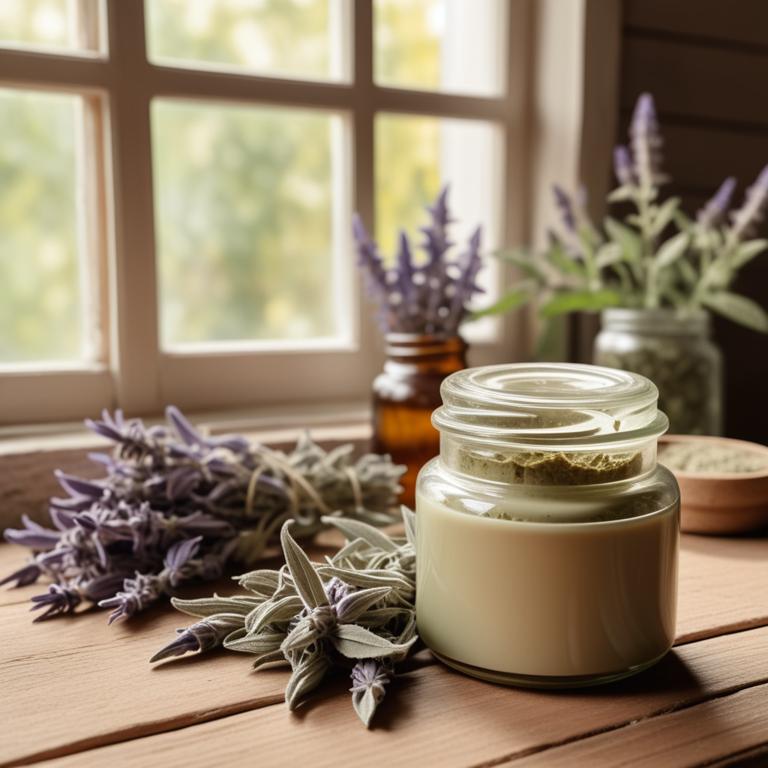
Salvia officinalis creams, derived from the leaves of the sage plant, have been traditionally used to treat chest congestion by providing relief from coughs and colds.
The anti-inflammatory and expectorant properties of Salvia officinalis creams help to reduce congestion and promote the clearance of mucus from the lungs.
The bioactive constituents, including rosmarinic acid, ursolic acid, and camphor, found in these creams, contribute to their therapeutic effects by acting as bronchodilators and mucolytics, thereby easing breathing and relieving congestion.
The benefits of using Salvia officinalis creams to treat chest congestion include natural and non-invasive relief from symptoms, reduced reliance on pharmaceuticals, and a decrease in the risk of side effects associated with conventional treatments.
5. Rosmarinus officinalis creams
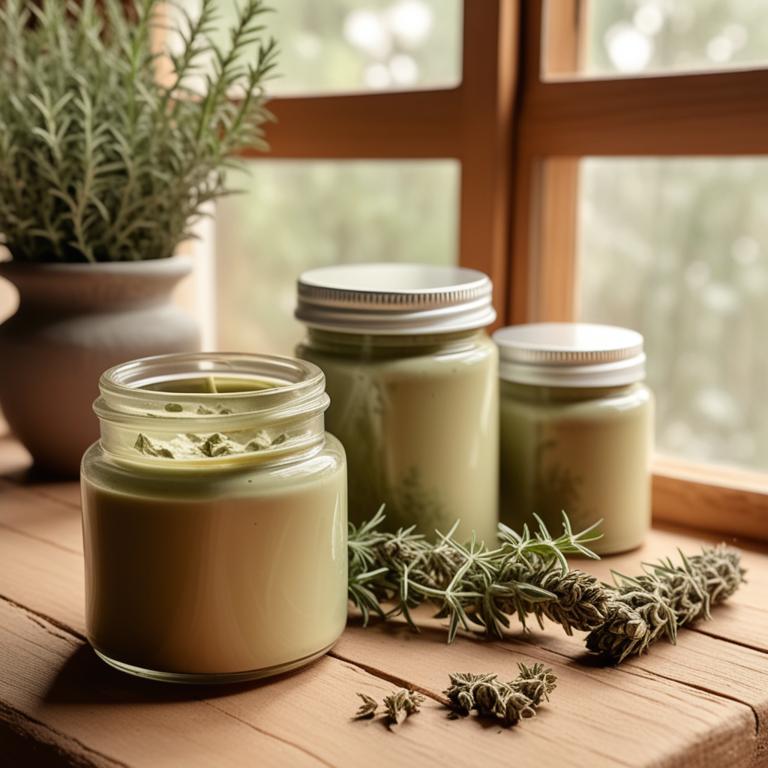
Rosmarinus officinalis creams have been traditionally used to treat chest congestion, a common respiratory ailment characterized by coughing and difficulty breathing.
The anti-inflammatory and expectorant properties of these creams help to reduce inflammation in the airways and promote the clearance of mucus, thereby alleviating symptoms of congestion.
The bioactive constituents of Rosmarinus officinalis, including camphor, borneol, and 1,8-cineole, possess antimicrobial and bronchodilatory properties that contribute to its therapeutic effects in treating chest congestion.
The benefits of using Rosmarinus officinalis creams to treat chest congestion include rapid relief from symptoms, improved lung function, and reduced risk of complications, making it a popular natural remedy for respiratory health.
6. Zingiber officinale creams
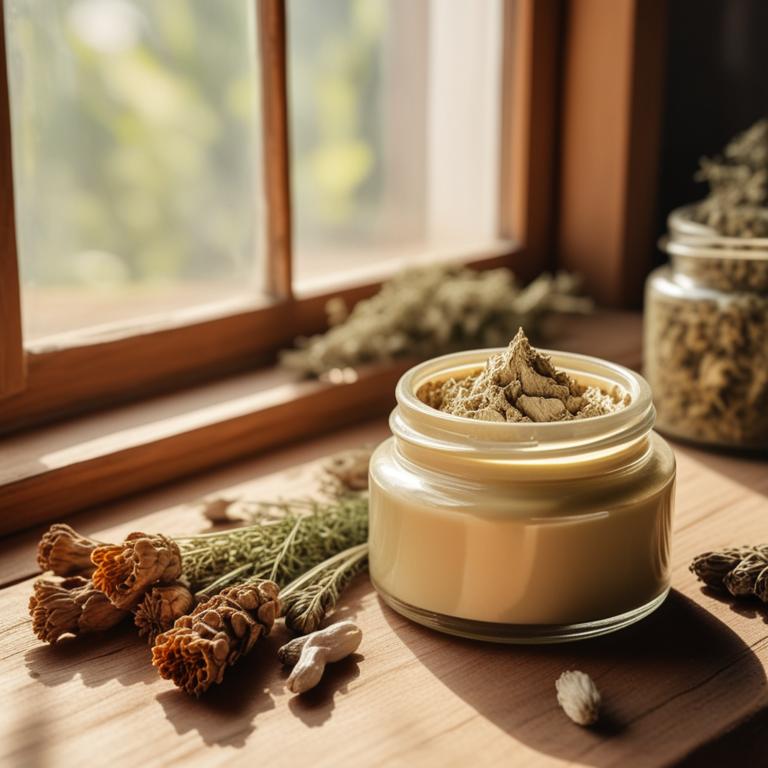
Zingiber officinale creams, derived from the rhizomes of the ginger plant, have been traditionally used to treat chest congestion due to their potent anti-inflammatory and expectorant properties.
The bioactive constituents, including gingerols and shogaols, help to break down mucus and reduce inflammation in the respiratory tract, thereby alleviating symptoms of congestion.
By stimulating the expulsion of mucus and promoting a clear airway, Zingiber officinale creams provide relief from chest congestion and associated respiratory issues.
The benefits of using these creams include natural relief from congestion, reduced risk of complications, and promotion of overall respiratory health.
Related Study
According to "Recent patents on biotechnology", Zingiber officinale creams for chest congestion have shown potential as an adjuvant symptomatic therapy in respiratory conditions, such as bronchitis and cough.
7. Cymbopogon citratus creams

Cymbopogon citratus creams, derived from the essential oils of the lemongrass plant, offer a natural remedy to alleviate chest congestion.
The anti-inflammatory and decongestant properties of this herbal preparation help to reduce swelling and ease breathing, providing relief from the discomfort associated with this ailment.
The bioactive constituents, including citral and geraniol, present in Cymbopogon citratus creams have been found to exhibit antimicrobial and bronchodilatory activities, contributing to their effectiveness in treating chest congestion.
The benefits of using Cymbopogon citratus creams for this purpose include their soothing and calming effects, making them an attractive alternative to conventional medications for those seeking a natural and non-invasive solution.
8. Echinacea purpurea creams
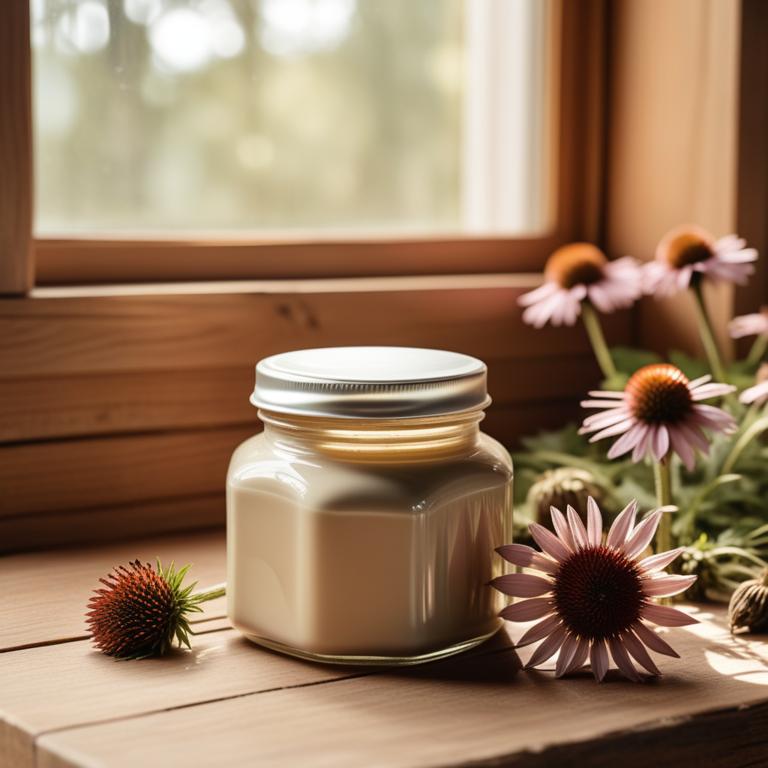
Echinacea purpurea creams have been traditionally used to treat chest congestion, a common ailment characterized by coughing and difficulty breathing.
The anti-inflammatory and antimicrobial properties of this herbal preparation help to reduce inflammation and combat infections in the respiratory tract, thereby alleviating congestion.
Echinacea purpurea creams contain bioactive constituents such as alkylamides, glycosides, and phenolic acids, which have been shown to exhibit immunomodulatory and antioxidant activities that aid in treating chest congestion.
By reducing inflammation, fighting infections, and supporting the immune system, Echinacea purpurea creams offer a natural and effective remedy for chest congestion, providing relief from coughing, congestion, and other associated symptoms.
9. Lavandula angustifolia creams

Lavandula angustifolia creams have been traditionally used to treat chest congestion, a common respiratory ailment, due to their soothing and anti-inflammatory properties.
The herbal preparation helps to treat chest congestion by reducing inflammation and congestion in the lungs and bronchial passages, allowing for easier breathing.
The bioactive constituents of Lavandula angustifolia, including linalool and linalyl acetate, have been shown to have expectorant and bronchodilatory effects, helping to loosen and clear mucus from the airways.
Regular use of Lavandula angustifolia creams can provide relief from chest congestion symptoms, promoting relaxation and improved respiratory function.
10. Melissa officinalis creams
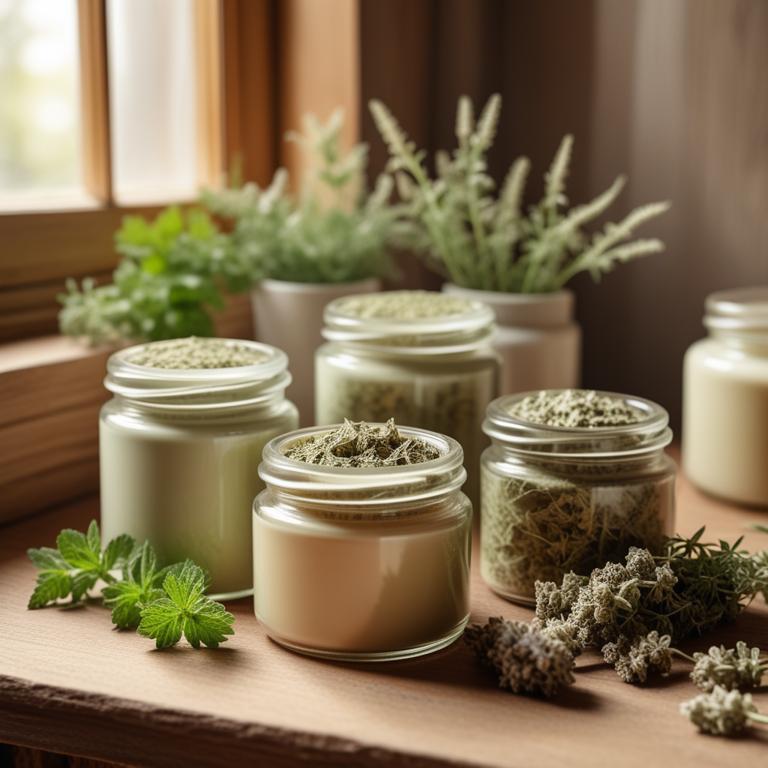
Melissa officinalis creams have been traditionally used to treat chest congestion, a common respiratory ailment characterized by coughing and difficulty breathing.
The anti-inflammatory and expectorant properties of Melissa officinalis creams help to reduce congestion and promote the clearance of mucus from the respiratory tract.
The bioactive constituents present in Melissa officinalis creams, such as flavonoids, phenolic acids, and terpenoids, contribute to its therapeutic effects by inhibiting the production of pro-inflammatory mediators and relaxing the smooth muscles in the airways.
The benefits of using Melissa officinalis creams to treat chest congestion include relief from symptoms, improved respiratory function, and reduced risk of complications associated with chronic respiratory conditions.
11. Ocimum basilicum creams
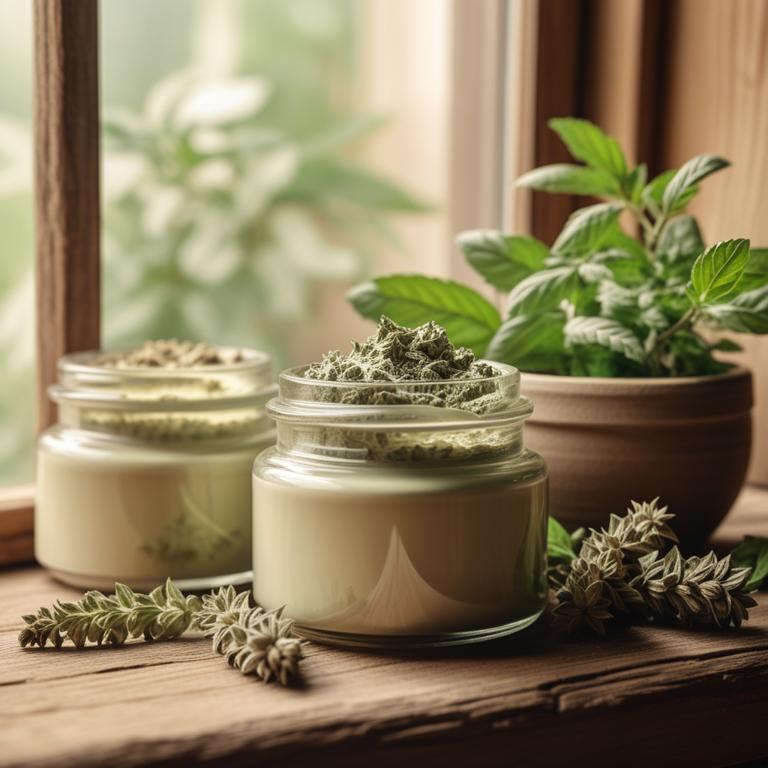
Ocimum basilicum creams, derived from the leaves of the sweet basil plant, have been traditionally used to treat chest congestion due to their decongestant and expectorant properties.
The bioactive constituents of Ocimum basilicum, including eugenol, linalool, and ursolic acid, help to reduce inflammation, thin mucus, and relax airway muscles, making it easier to cough up phlegm.
By using Ocimum basilicum creams, individuals can experience relief from chest congestion, as the herbal preparation helps to break down and clear out mucus, promoting easier breathing and alleviating coughing.
The benefits of using Ocimum basilicum creams to treat chest congestion include reduced inflammation, improved respiratory function, and a faster recovery time, making it a natural and effective alternative to conventional treatments.
12. Lavandula latifolia creams

Lavandula latifolia creams have been traditionally used to treat chest congestion due to their anti-inflammatory and expectorant properties.
These creams help to treat chest congestion by reducing inflammation in the airways and loosening mucus, making it easier to expel.
The bioactive constituents of Lavandula latifolia creams, including linalool and linalyl acetate, help to relax the airway muscles and reduce congestion.
The benefits of using Lavandula latifolia creams to treat chest congestion include reduced coughing and congestion, improved breathing, and a faster recovery time.
13. Hyssopus officinalis creams
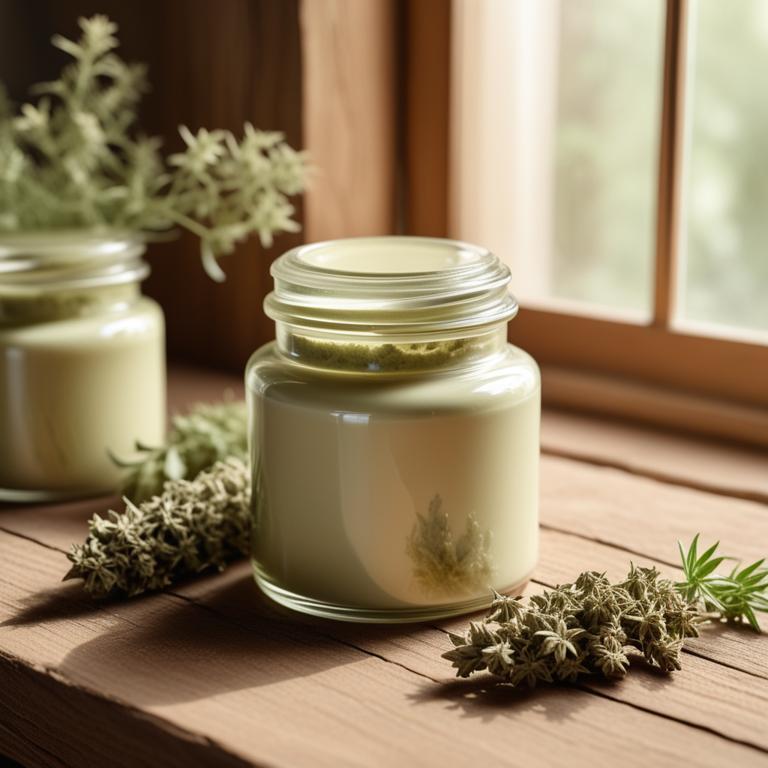
Hyssopus officinalis creams have been traditionally used to treat chest congestion due to their decongestant, anti-inflammatory, and expectorant properties.
These properties help to break down and clear mucus from the airways, reducing congestion and making breathing easier.
The bioactive constituents of Hyssopus officinalis, including volatile oils such as camphor and pinene, help to open up air passages and promote the clearance of mucus.
The use of Hyssopus officinalis creams to treat chest congestion offers several benefits, including rapid relief from symptoms, reduced risk of complications, and a natural alternative to conventional medications.